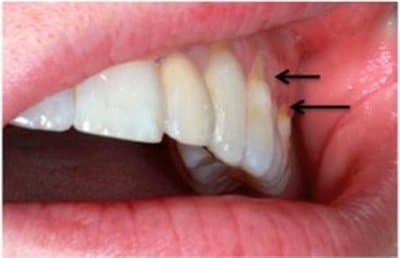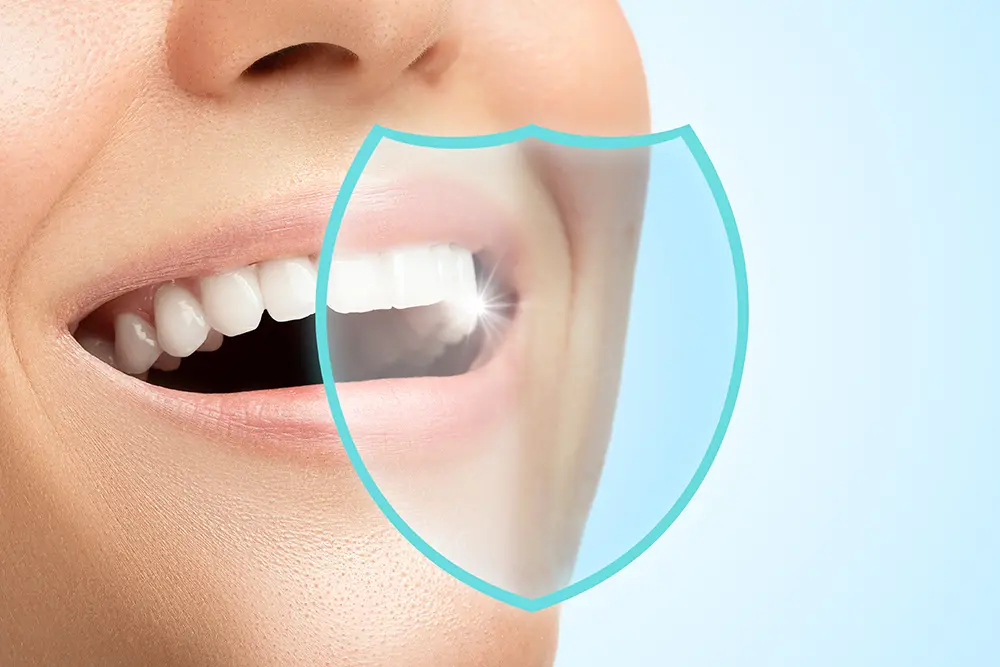Do you experience pain when you bite into an ice cream? If so, you may have sensitive teeth. Teeth sensitivity can make it difficult to enjoy certain foods and drinks, such as hot, cold, acidic or sweet foods.
Thankfully, it’s possible to manage sensitivity in your teeth and gums. There are actually different causes of sensitivity, and we’ll cover the five most common causes and treatments for sensitive teeth.
Sensitive Teeth Due to Stress
Can stress cause sensitive teeth? Stress and anxiety often lead to teeth grinding (also known as bruxism) and jaw clenching. Teeth grinding over time can wear down your teeth in a process known as dental attrition (tooth wear caused by tooth-to-tooth contact).
This causes teeth sensitivity, as your enamel is what protects you from feeling extreme temperatures such as hot and cold foods and drinks. It causes loss of your teeth’s enamel, and the biting surface of your teeth can appear flat.
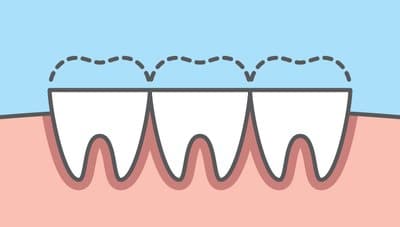
Treatment For Sensitive Teeth Due to Stress
It’s important to diagnose this early before teeth are too damaged. If you suspect you grind or clench your teeth, visit a dental clinic for a detailed examination.
After diagnosis, the dentist may recommend several treatments such as:
- A customised nightguard to protect your teeth from grinding at night.
- If your teeth are severely worn-down, they may recommend dental crowns to cover your tooth and prevent further damage.
- Dietary advice may be provided.
These will prevent your teeth from becoming more sensitive and help you manage the condition.
Sensitive Teeth Due to Dental Abrasions
It’s important to brush your teeth thoroughly every day. However, brushing too hard can damage teeth and gums, causing tooth sensitivity. This is known as dental abrasion, which is tooth wear caused by mechanical actions other than tooth-to-tooth contact (teeth grinding).
With dental abrasion, your tooth appears to have a notch near the gums or may even appear to be discoloured. Since your teeth are more exposed, it can cause teeth sensitivity.
Dental abrasion can be caused by other objects such as using toothpicks and dental floss, or wearing ill-fitting dentures and retainers.
Treatment for Dental Abrasions
The dentist will work with you to find out the causes of your dental abrasion in order to recommend solutions. For example, you may be taught how to brush and floss correctly.
Additionally, you can use de-sensitising toothpaste to reduce sensitivity. Apply it on a soft-bristled toothbrush, and then gently brushing near the gums in a circular motion.
Sensitive Teeth Due to Coffee
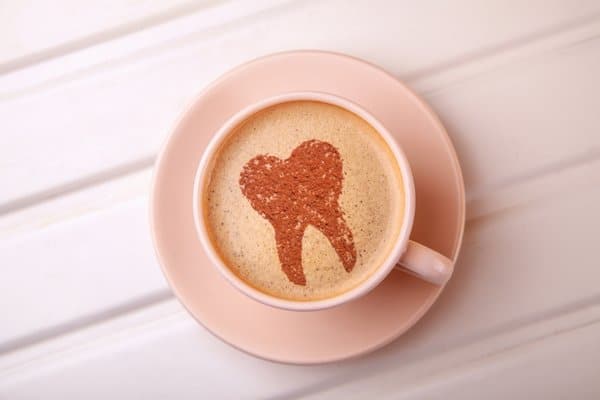
If you have sensitive teeth, drinking a hot beverage such as coffee can cause pain. However, could the coffee itself be causing sensitivity? The answer is yes.
Coffee is acidic, and acidic foods and drinks can cause dental erosion. Dental erosion is the loss of your teeth by consuming acidic substances, as they soften your teeth structure and make it vulnerable to decay and erosion. As mentioned earlier, loss of enamel can cause sensitivity.
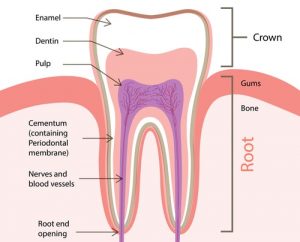
Treatment for Teeth Erosion
Your dentist may provide customised dietary advice based on your usual diet. For example, you may be told to snack less often, or to avoid sugar as it can also lead to dental erosion.
Also, it’s important to avoid brushing your teeth immediately after a meal. That’s because your tooth structure is vulnerable when it’s recovering from the acid in your mouth. Instead, rinse with water, then sodium bicarbonate, followed by a fluoride mouth rinse. You can then brush your teeth 30 minutes after eating.
Tooth Sensitivity Due to Dental Decay
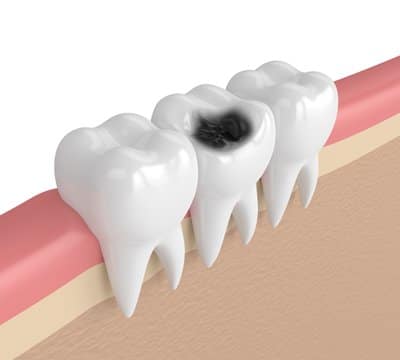
Tooth decay (also known as caries) is one of the most common health problems worldwide. When tooth decay progresses, you may experience tooth sensitivity on and off at a certain place or tooth when eating sweet or sour foods.
Treatment for Tooth Decay (Caries)
Treatment requires a trip to the dentist, where they will determine the extent of the destruction of your tooth. Then, they will discuss treatment options with you depending on the severity of the decay, such as getting fillings or crowns.
Sensitive Teeth Due to Gum Disease
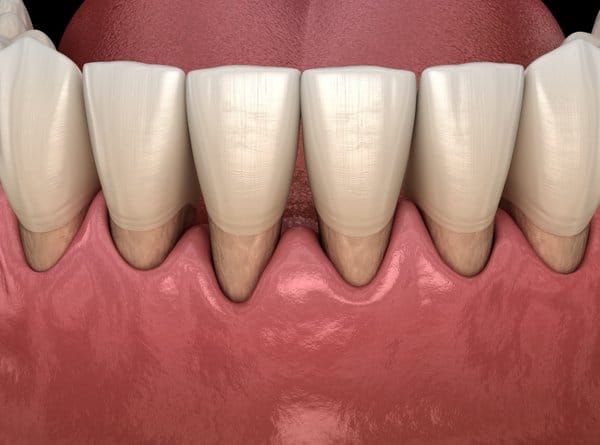
So far, we’ve covered teeth sensitivity caused by damaged teeth. However, you can also get sensitivity if your gums are damaged too. Gum disease is the infection of the soft tissue around your teeth, which can lead to receding gums over time.
As such, your tooth’s root becomes exposed. Since there’s less tissue covering nerves in the root, your teeth and gums become more sensitive. Other symptoms are gums that bleed easily upon brushing and flossing.
Treatment For Sensitive Teeth Due to Gum Disease
There are gum specialists (called periodontists) who can do a detailed dental examination and create a personalised treatment plan to manage gum disease.
Once your teeth root surfaces are adequately cleaned, they will recommend a customised teeth cleansing technique and desensitising toothpaste to help reduce your sensitivity.
You can learn more about the symptoms and treatment for gum disease at our treatment page.
Summary

Thankfully, sensitivity can be managed by addressing the root of the problems. These problems can worsen over time, so early diagnosis important in preventing sensitivity from worsening. Hence, do visit your dentist to diagnose the cause of your sensitivity and manage it today!
Teeth and gum sensitivity can be caused by various conditions, such as teeth grinding, abrasions, dental erosion, tooth decay or gum disease. That’s because either the teeth enamel or gum is damaged, causing your teeth to be less protected from extreme temperatures (hot or cold) or acidic foods.


